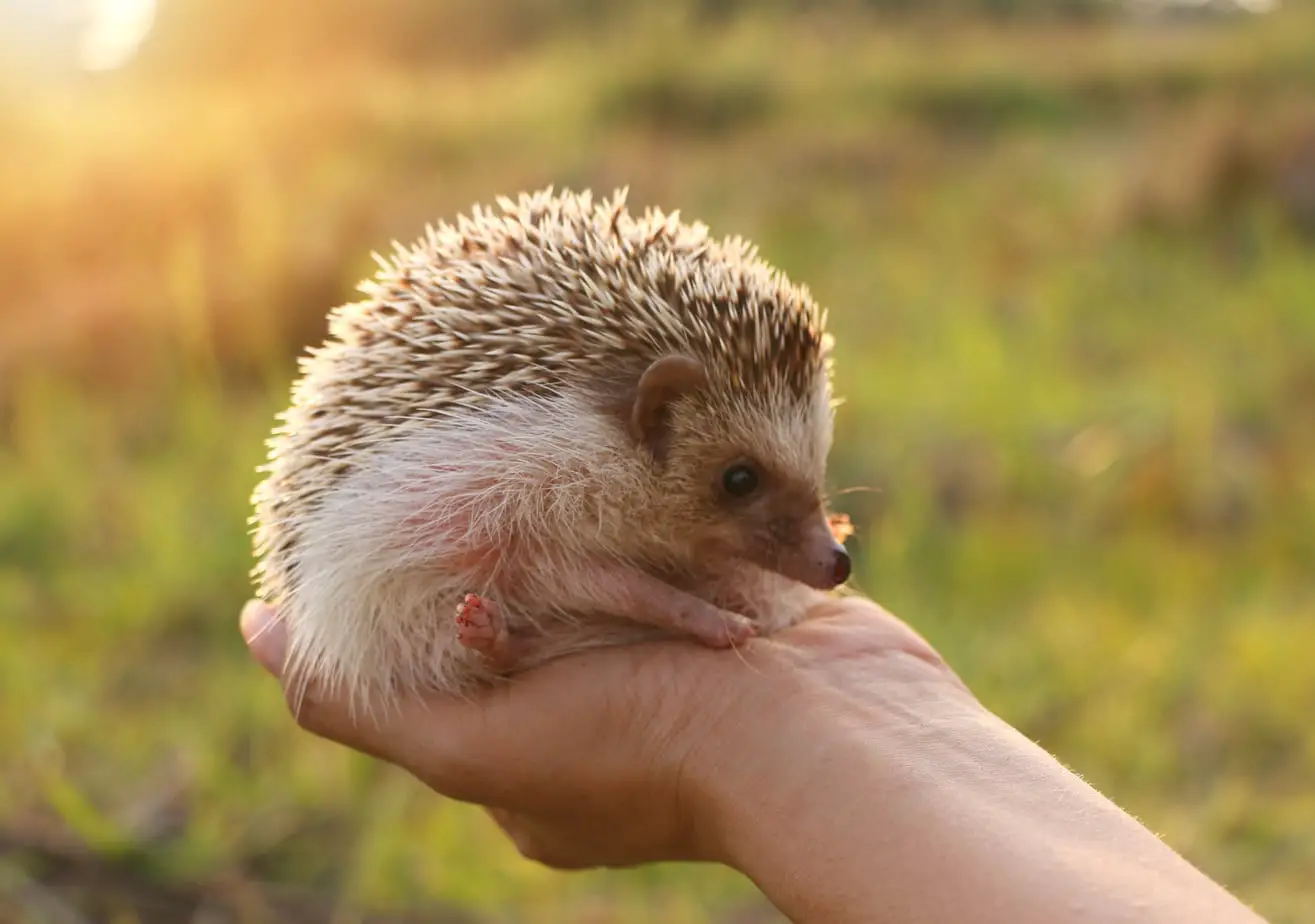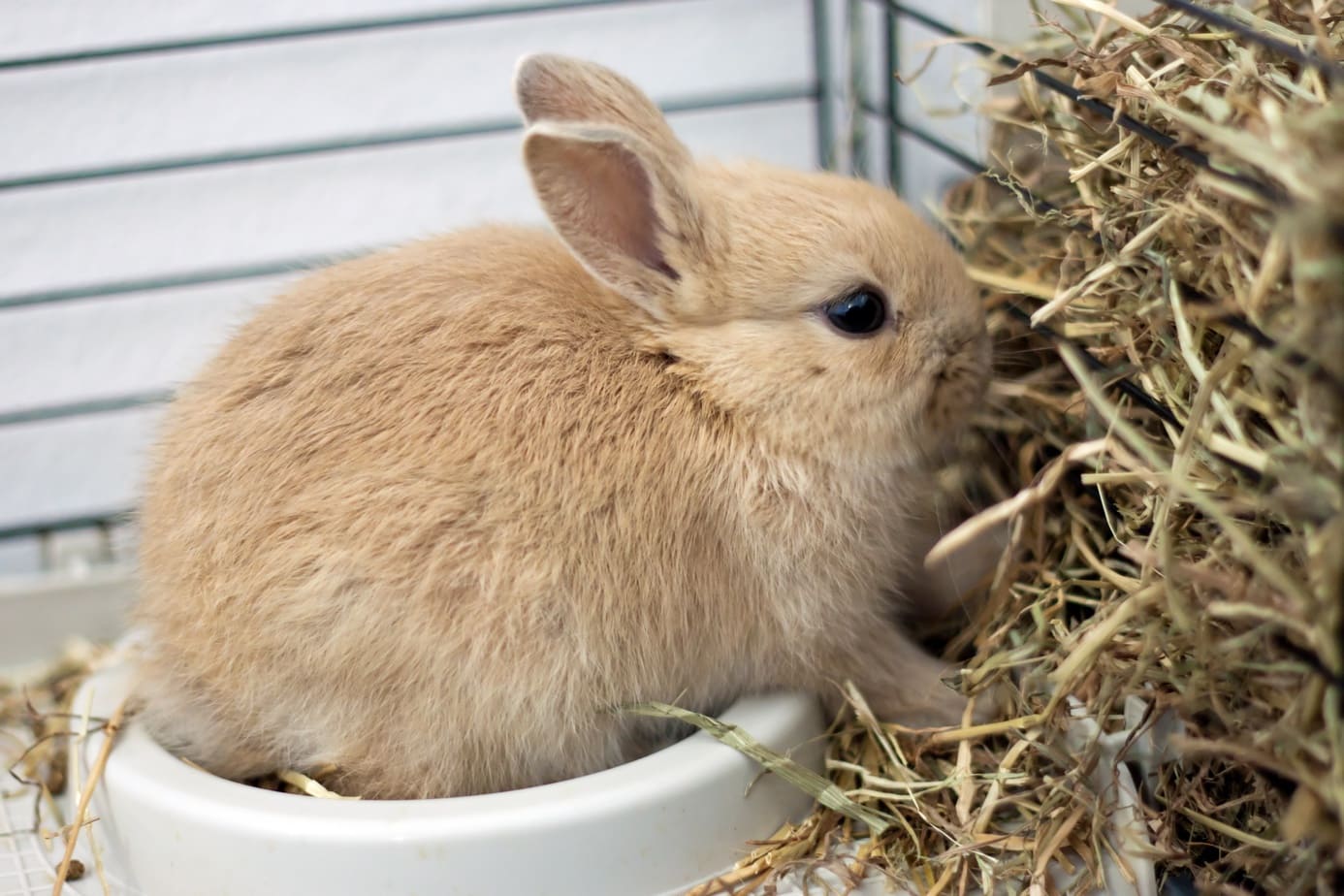
Rabbits and hedgehogs are both small and cute mammals, which makes it easy to think that they are pretty similar to own as pets. However, there are some key differences that potential pet owners should keep in mind when they’re weighing the pros and cons.
Rabbits and hedgehogs can be kept in similar environments, but they both require unique diets and care regimes. Rabbits are herbivores with delicate digestive systems, while hedgehogs prefer an omnivorous, protein-based diet. Additionally, some states have made it illegal to own pet hedgehogs.
Speaking as someone who has owned both rabbits and hedgehogs, I can tell you that both of these little mammals can make great pets as long as they get the proper care. We have more information regarding their diets and unique care requirements to help you decide which pet will be best for you.
Rabbit And Hedgehog Pros and Cons
| Rabbit Pros | Rabbit Cons |
| Quiet | Sensitive digestive system |
| Fairly simple diet | Extra cleaning and grooming |
| Soft fur | Bite, hide, and run when nervous |
| Social | Require extra attention |
| Widely available | Not good with young kids |
| Can be trained | Smelly and require cleaning |
| Hedgehog Pros | Hedgehog Cons |
| Quiet | Spiny and possibly difficult to hold |
| Stronger digestive system | Need a greater variety of food |
| Less cleaning and grooming | Bite, hide, and curl up when nervous |
| Require less attention | Illegal in certain US states |
| Exercise and play often | Sometimes transmit disease |
| Can be socialized | Shy and territorial |
| Not smelly | 4-6 year life span |
There is a fair amount of overlap between the care of these animals. Both of them start as fairly shy little animals, but with patience and kindness, owners can break through and form strong bonds with their new pet!
Some traits of each may be a pro or a con, depending on your preferences. For instance, hedgehogs are nocturnal animals and will be active at night. If you’re gone a lot during the day, they might be a good choice for you! But if you’re a light sleeper, it may keep you up when you hear a little animal eating or running on its exercise wheel.
Obviously, any animal can become bad-tempered if it’s sick, bored, or unhealthy. To give your rabbit or hedgehog the care it needs to become a loving pet, let’s look into the care and diet they both require.
Rabbit And Hedgehog Care And Diet
Cages:
Rabbits and hedgehogs will both spend a lot of time in their cages and enclosures, so it’s important that pet owners set them up properly!

The first issue is space. All pets need enough space to move around, and it’s best if enclosures have clearly defined areas for eating, drinking, sleeping, and urinating. Hedgehogs and rabbits will both appreciate having a safe, covered area they can retreat to for sleeping and relaxation.
Rabbits need a minimum space of 12 square feet, while hedgehogs need 4 square feet. This is mainly due to a difference in their size since hedgehogs are smaller than most rabbit species. However, most animals will enjoy an even larger space if you can manage it. After all, their natural habitat has no limits.
For the animal’s health (and for your own convenience) the cage should be easy to access and clean. I discuss tips for keeping a rabbit’s cage clean here that could help just about any owner easily keep up with cage maintenance.
Both rabbits and hedgehogs have tender feet, and cages with wire or mesh bottoms can make their feet sore. A solid base is best, especially if it’s coated in a layer of bedding, straw, or some other padding.
Toys:
Everyone needs a bit of entertainment and fun in their lives! Our pets are no exception to this rule. Rabbits and hedgehogs both enjoy a variety of toys, although some preferences will develop over time. Different toys also serve different purposes, so getting a variety is a good idea.
Favorite rabbit toys include:
- Chew toys
- Toys that make soft rustling or crunching noises
- Items that can be safely torn or toppled
Favorite hedgehog toys include:
- Exercise wheels
- Balls, toy cars, and other rolling objects
- Foraging/hidden treat toys
Both of them will enjoy play tunnels and cardboard tubes. These help to simulate the burrows that they might dig in the wild.
Diet:
Diet is one of the major ways that hedgehogs and rabbits differ. While both of them may enjoy a nibble of fruit from time to time, their basic nutritional needs are fairly different.
Rabbits are herbivores, whose primary food is dried hay. This makes up 80-90% of their food! Dried pellets can be used to supplement their dietary needs and provide some extra fiber. Once or twice a week they can enjoy a bit of fruit or vegetable as a treat.
Hedgehogs are omnivores and will eat just about anything they can find in the wild. When they’re kept as pets, owners should give them mainly kibble that is meat-based and high in protein. There are several brands of hedgehog-specific kibble, and these are usually the best option because they are made with a specific balance of nutrients.
Chitin is an important part of hedgehog’s diet as well and can be found in a variety of insects such as crickets and mealworms. Again, fruits and vegetables can be given as a treat, not as a diet staple.
DID YOU KNOW? Certain rabbit breeds are easier to care for than others. To see which breeds are the lowest maintenance for their owners, see my article The 6 Easiest Rabbit Breeds to Take Care Of here.

Legality Of Ownership
Rabbits are pretty widely accepted as pets across the United States. Aside from individual rules that apartments might have, there aren’t any restrictions when it comes to who can own a rabbit and where it can live. Some owners, in certain circumstances, will even raise them in their garage. In fact, I wrote an article all about raising a rabbit in your garage here if you want to learn more.
Hedgehogs are becoming more widely available as pets, but in some places, it is still illegal to own one. They are considered to be exotic pets and fall under some of the restrictions that that implies.
Currently, it is illegal to own a hedgehog as a pet in California, Georgia, Hawaii, Pennsylvania, and the 5 Boroughs of New York City. If you live in New Jersey or Wisconsin, you may need to get a permit or a certificate of veterinary inspection before you’ll be allowed to keep a hedgehog.
Wildlife rescue centers and licensed veterinarians may be allowed to care for hedgehogs in these areas. Generally, you can’t own one of these spiky little critters if you live in a restricted area.
